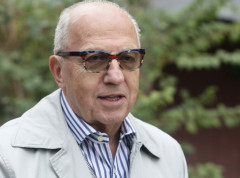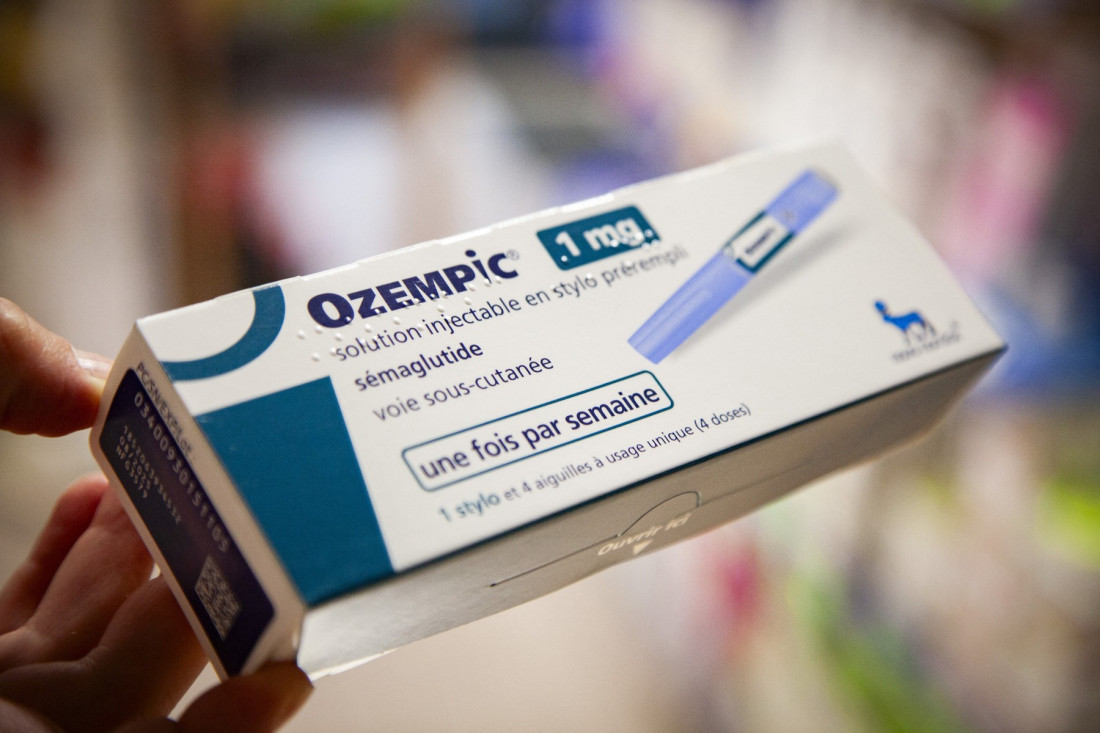Kopaonik Business Forum enriched by the panel discussion „European Union Agriculture at the International Agricultural Fair in Novi Sad“, which was held on Tuesday, March 5th in the Central Hall of the Grand Hotel. Participants included: Slobodan Cvetković, Minister of Economy in the Government of Serbia, Vedrana Ilić, Assistant Minister, Ministry of Agriculture, Forestry, and Water Management of the Republic of Serbia, Andrej Papić, Project Manager of the European Union Delegation in Belgrade, Antonio Ventreska, Director of the Italian Trade Agency ITA/ICE in Belgrade, and Nikola Lovrić, General Director of the Novi Sad Fair.
Prior to the panel, a film dedicated to the centennial of the Novi Sad Fair was shown.
This year, the Agricultural Fair for the first time does not have a Country partner, but an entire region – the European Union. Novi Sad has already presented itself as the European Capital of Culture, the European Youth Capital, and the question has arisen whether it can also be the capital of agriculture.
The EU is the most important economic partner of Serbia, and international fairs are essential for the development of our companies, said Minister of Economy Slobodan Cvetković. „The European Union is a strategic partner of the Republic of Serbia. When we look at the cooperation between the economy of Serbia and the EU, a very important parameter is the EU market, which consists of 450 million inhabitants. This is not only a large market, but a market of citizens who have an average salary of around 3,000 euros. This means that the EU market is a very potent consumer society, for which the Serbian market is very interested,“ added Minister Cvetković.
He also emphasized that trade between Serbia and the EU amounts to 39.1 billion euros and added that the EU contributes almost 60% of foreign direct investments in Serbia.
„We have significant benefits from the trade and economic integration with the EU. On one hand, the EU has high standards and quality of services and products, which they expect to receive on their market, protecting their market, while on the other hand, raising the capacities of potential service and goods providers. That is why the EU requires our companies to elevate to a higher level,“ Minister Cvetković emphasized.
Speaking about the trend of EU investments in the Serbian market, the Minister of Economy highlighted that our country benefits from its geographical location, good road infrastructure, educated workforce, more favorable energy prices than in the region, and incentives for foreign direct investments. Serbia is a leader in the region in attracting FDI.
Discussing the most efficient model of support for the Serbian economy to showcase on the international market, Cvetković pointed out that the focus is now on the trade fair industry, whose development has been contributed to by modern technology such as monitoring events through online formats. He added that through various programs and in collaboration with the Serbian Chamber of Commerce and the Development Agency of Serbia, the Ministry of Economy supports our companies in the process of internationalization and their presence on foreign markets.
„We in the European Union often organize field visits to farmers, have meetings with organizations and try to inform them as much as possible about the main instrument of EU support to farmers, which is the well-known IPARD program, which truly includes a wide range of measures and a wide range of projects that can be financed within IPARD, from funds that can be invested in agricultural machinery, construction of new facilities such as stables, rural tourism, etc. In the current period from 2021 to 2027, the European Union has allocated around 290 million euros for IPARD with co-financing from the national budget of the Republic of Serbia and also from the private sector. This creates potential for an investment cycle of around 550 million euros in the agricultural sector of the Republic of Serbia,“ said Andrej Papić, Project Manager of the European Union Delegation in Belgrade.
„We all have to work a lot more for knowledge about IPARD to become closer to the businessmen and to explain that it is not a monster and that it is not difficult, as well as to have successful farmers who have successfully applied and received tractors and all other means, making their farms more competitive, and thus the agricultural sector in the Republic of Serbia. The European Union also has other projects besides IPARD. These are processes of capacity building for the public administration, and I would also mention the long-term project of eradicating rabies, which started 10 years ago, and is still ongoing. The program is implemented through oral vaccination, with the result being that from 2019 we no longer have rabies,“ Papić said.
„I think that the agricultural sector in Serbia is informed about the standards in the EU, although there are still some areas to work on. I would start from the fact that the EU is the main export destination for Serbian products. The agricultural policy in the European Union is changing towards more sustainable use of resources. The European Union Delegation is here to help the Ministry and the entire sector to do everything as successfully as possible. We are in everyday contact and cooperation. We have a number of projects that are being worked on, many of them have been implemented in the past, and the result of those contacts are many adopted laws and sublegal acts. This is a process on which we must continue to work,“ emphasized Papić.
Vedrana Ilić, Assistant Minister in the Ministry of Agriculture, Forestry, and Water Management of the Republic of Serbia, answered questions – What are the advantages of the European Union market compared to other markets when it comes to exporting our agricultural and food products? Are we using IPARD and other EU accession assistance programs enough? How good is the fair a place for the promotion of these programs?
„Every year we have an EU day at our stand where we will present the entire IPARD project, which is used not only by small producers. In recent years, we have received 3,180 requests, which amounts to about 400,000 euros in public investments. What we definitely need to do is to further educate our agricultural producers on how to make use of these funds,“ said Vedrana Ilić. „We are working a lot on introducing quality standards, primarily working on our chapters 11, 12, and 13, which are related specifically to agriculture. On the one hand, we strive for the EU, and on the other, we are creating a legal framework for our agricultural producers and products to participate in that market,“ Ilić said.
She sees particular importance in the standardization process, that is, harmonizing with European frameworks because, first and foremost, it is about food safety, but also labeling and numerous other aspects.
„In 2023, total exports to the EU amounted to 2.2 billion euros, and that is our significant potential. Primarily, we are talking about access to a large market, building greater consumer trust, but also the possibility of competing in a large number of markets. What the state is doing, with the help of the European Union, is equipping the accreditation of our Directorate for National Reference Laboratories. Then, continuous education of our employees, but also agricultural producers through agricultural advisory services, as well as improving our inspection surveillance, promoting organic production…Vedrana Ilić added that there is great potential for investment in the processing sector,“ Vedrana Ilić added.
„We have only 27% of processed products in our structure of agricultural-food products, all the rest are primary, 73%. We primarily export frozen raspberries, bulk corn, wheat, pet food, and so on,“ she explained. The state is investing in increasing our processing capacities, returning our giants like Budimka, and also making large investments in a factory for the production of pet food or the Hungarian-Serbian company located in Arilje that invests a lot of money and employs 40 people.
Organic production is another great chance for our country, according to Vedrana Ilić, who noted that we had 1,000 organic producers in 2012 and now have 7,000, with 29,000 hectares under organic production. Our exports have increased from 3.74 million euros to 52.8 million. „I hope that together we will all invest in agricultural production because it represents a great investment opportunity in the European Union market,“ concluded Vedrana Ilić.
Italy has been participating in the International Agricultural Fair in Novi Sad for almost 60 years, and in the last decade alone, it has been a Partner Country more than three times (2016, 2019, 2023), as well as a Friend Country once. Keeping all this in mind, the question „How important is the Italian economy’s participation in the International Agricultural Fair in Novi Sad“ was posed to Antonio Ventreska, Director of the Italian Trade Agency ITA/ICE in Belgrade, as someone who is personally present at the Novi Sad Fair, but also as a representative of a large economy.
„Italy has been present at the Novi Sad Agricultural Fair for 60 years. The important friendship between ITA/ICE and the Novi Sad Fair, to confirm this, I have brought photos from the forties showing how…“




